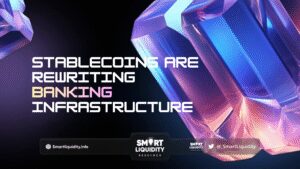Blockchain Arbitration Systems


As blockchain evolves, DeFi, NFTs, and Web3 enable complex cross-border transactions. Smart contracts automate processes but can’t resolve disputes from ambiguity, errors, or fraud. This gap drives Blockchain Arbitration Systems (BAS), a decentralized alternative to traditional dispute resolution. This article covers its concept, mechanisms, benefits, and challenges.
Understanding Blockchain Arbitration Systems
Blockchain Arbitration Systems (BAS) are decentralized platforms designed to resolve disputes in blockchain-based transactions without relying on centralized authorities. Unlike traditional courts or arbitration centers, BAS leverages smart contracts, consensus mechanisms, and decentralized juries to ensure transparency, neutrality, and efficiency.
Key characteristics include:
- Decentralization: No single party controls the process.
- Smart Contracts: Automate enforcement of decisions.
- Immutable Records: All evidence and verdicts are stored on-chain.
These systems aim to bridge the gap between code and law, ensuring trust in digital agreements.
How Blockchain Arbitration Works
The process generally follows these steps:
- Smart Contract Deployment: Two parties enter into an agreement coded into a smart contract with an arbitration clause.
- Triggering a Dispute: If one party claims a breach, the contract halts execution and sends the case to an arbitration protocol.
- Evidence Submission: Both parties submit evidence (documents, transaction hashes, screenshots) on-chain or via IPFS.
- Selection of Arbitrators: Arbitrators are randomly chosen from a decentralized pool, often requiring staked tokens as collateral.
- Voting & Ruling: Arbitrators review evidence and vote based on platform rules.
- Enforcement: The smart contract executes the final decision automatically, releasing funds or assets to the rightful party.
This approach eliminates the need for lengthy legal procedures while maintaining fairness through community-driven governance.
Key Components of Blockchain Arbitration Systems
To understand BAS, let’s break down the core components:
Component | Function |
Smart Contracts | Define rules, manage funds, and execute arbitration outcomes automatically. |
Arbitrators/Jurors | Decentralized individuals or nodes that evaluate disputes and vote on outcomes. |
Staking Mechanism | Ensures commitment and penalizes dishonest decisions via token slashing. |
Evidence Layer | Stores and verifies submitted evidence securely using IPFS or on-chain hashes. |
Voting Protocol | Uses mechanisms like commit-reveal or quadratic voting to ensure fairness. |
Governance System | Allows community to update rules, resolve appeals, and maintain system integrity. |
These components collectively ensure that the arbitration process is trustless, transparent, and resistant to bias.
Benefits of Blockchain Arbitration
Blockchain arbitration introduces a paradigm shift in legal and financial ecosystems, offering several advantages:
- Borderless Jurisdiction: Ideal for cross-border DeFi, NFT, and metaverse transactions where legal systems conflict.
- Speed and Efficiency: Resolutions occur within hours or days, compared to months in traditional courts.
- Cost-Effectiveness: Eliminates heavy legal fees and intermediaries.
- Transparency and Immutability: Every decision and vote is recorded on-chain, ensuring accountability.
- Community-Driven Fairness: Randomized juror selection reduces the risk of collusion and bias.
These benefits make BAS a critical innovation for Web3-native businesses and decentralized governance models.
Challenges and Limitations
Despite its promise, BAS faces several hurdles:
- Scalability Issues: High network fees and slow block confirmations on Layer 1 chains can delay arbitration.
- Human Subjectivity: Even with decentralized jurors, bias and manipulation risks persist.
- Legal Recognition: Most jurisdictions do not yet recognize blockchain-based arbitration as legally binding.
- Data Privacy: On-chain evidence can expose sensitive data if not encrypted properly.
- Sybil Attacks: Fake identities may infiltrate arbitrator pools without robust identity verification.
Addressing these challenges is essential for BAS to gain mass adoption and legal legitimacy.
Leading Blockchain Arbitration Platforms
Several platforms are pioneering decentralized arbitration systems. Here are some notable examples:
Platform | Consensus Model | Key Features |
Token-curated jurors, commit-reveal voting | Supports multiple dispute types, appeals process. | |
Aragon Court | Staking-based juror selection | Integrated with DAO governance for decentralized organizations. |
Jur | Multi-tier arbitration model | Combines on-chain arbitration with off-chain legal frameworks. |
Real-world asset disputes | Bridges legal contracts with blockchain-based enforcement. |
These platforms illustrate the versatility of BAS across industries like DeFi, NFT marketplaces, DAOs, and cross-border commerce.
The Future of Blockchain Arbitration Systems
As Web3 governance, DeFi, and cross-chain ecosystems mature, demand for scalable and legally compliant arbitration solutions will rise. Potential future developments include:
- Integration with AI: Automated evidence analysis and bias detection for fairer rulings.
- Legal-Blockchain Hybrid Systems: Smart contracts recognized by real-world courts through standardized frameworks.
- Layer 2 Scaling: Use of rollups and sidechains to reduce arbitration costs and time.
- Reputation-Based Arbitration: Weighted juror selection based on historical performance and credibility scores.
Ultimately, blockchain arbitration systems will serve as the backbone of decentralized justice, enabling trust in an increasingly trustless economy.
Conclusion
Blockchain Arbitration Systems are not just a technological innovation; they represent a fundamental shift in how disputes are resolved in the digital age. By combining decentralization, transparency, and automation, BAS offers a faster, fairer, and borderless alternative to traditional arbitration. While challenges remain, the trajectory indicates a future where blockchain arbitration becomes a global standard for digital agreements.




